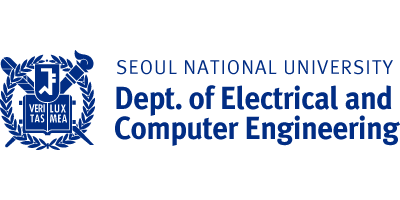Professor Sang-Kyun Cha says, “To develop talents that will lead the revolution after the era of semiconductors, the financial support for universities have to be increased first.” (Seoul Economics Daily, 2022.04.04)
The school was established in March of last year, but the support is insufficient.
Financial support has to be strengthened and restricting policies have to be aggressively removed.
To rise to a university of world-class caliber, the school has to be free from financial restrictions.
Sang-Kyun Cha, the Director of SNU Graduate School of Data Sciences, interviewing with Seoul Economics Daily
“If Korea wants to discover new channels for economic growth after semiconductors, it has to nurture talents who can penetrate the global market with sharp weapons. We need to strengthen support for universities and loosen regulations.”
Sang-Kyun Cha (63), the Director of SNU Graduate School of Data Sciences, said in a recent interview with Seoul Economics Daily that “the world of innovation has a ‘winner-takes-all’ environment”, and emphasized that “the matter of developing talents and companies that can lead innovations is the deciding factor”.
SNU established the Graduate School of Data Sciences in March of last year to nurture talents in the field of AI and big data. The school, which started with 40 masters and 15 doctoral students, has now doubled the assigned quota, but the budget is lacking, at only 600 million won a year. Director Cha said, “Stanford University of the United States spent 300 billion won to build a separate building for their data science research and education, and UC Berkeley facilitates more than 1,000 students studying data science.” “The size of the investment and the talent nurturing program is incomparable”, added Cha.
Director Cha emphasized the need to expand financial support for advanced education from the government. Harvard University, Stanford University, Yale University, MIT, etc have development funds of 40 to 50 trillion won. The National University of Singapore alone has a fund of 10 trillion won, but SNU has a fund of less than 1 trillion won. He further said that “In the case of Harvard University, a third of its annual operational budget comes from the profits from the development funds.”, and emphasized that “To rise to a university of world-class caliber, the school has to be free from financial restrictions”.
Cha accentuated that whenever the opportunity arises, 10 startups with a corporate value of 100 trillion wons (Hectocones) must be developed. The reason is that Korea did well in the past industrialization era by being a “fast follower”, but to be a “first mover” in the current and future era, disruptive innovation needs to occur, but such innovations do not occur well in the existing industrial and corporate setting. He said that “Legacy (traditional) industries such as the semiconductor industries are necessary, but we can keep on living solely on bread and butter.”, and that “through the development of startups, we have to look for new channels for economic growth.
Director Cha cited Databricks, which was founded by professors at UC Berkeley as an example of how universities can and should serve as “hubs of innovation ecosystems” to nurture startups. Databricks is a software company that provides services that allow for quick classification and processing of data owned by other companies.
He also argued for the liberalization of college entrance exams and the weakening of regulations on tuition fees. He said that “Having all universities select students based on the same criteria is to put all eggs in one basket, in the scenario of investments.”, and emphasized that “The criteria for admission have to become more diverse”. He added, “In the case of the United States, the tuition fees could be raised, but the students are financially protected by the scholarships funded by the development funds, so that they can receive quality education.”, and that “Regulations have to be loosened so that universities can be run in the framework of autonomy, freedom, and democracy”.
Director Cha predicts that with the expansion of universities’ autonomy admission, the pre-university education curriculum will change accordingly. He emphasized that “The important thing for the future generation is the storytelling ability.”, and that “education at the pre-university level should be focused on nurturing storytelling abilities, which describes the ability to carry out objective thinking and reasoning skills based on historical and data evidence, and the ability to communicate such information as a comprehensible story.”
Source: https://ece.snu.ac.kr/community/news?bm=v&bbsidx=52448
Translated by: Do-Hyung Kim, English Editor of the Department of Electrical and Computer Engineering, kimdohyung@snu.ac.kr


